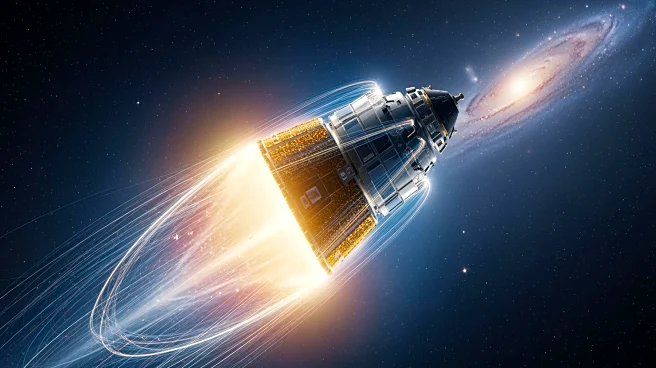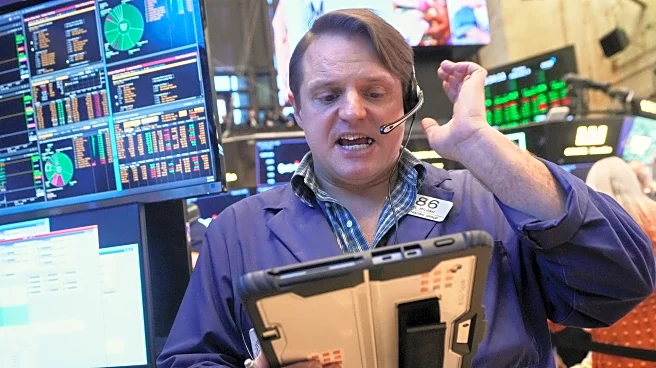What's Happening?
ATMOS Space Cargo, a German reentry startup, and Space Cargo Unlimited (SCU), a Luxembourg-based manufacturer, are collaborating on their first mission to orbit and return in 2026. This mission is part
of a series of seven orbital research missions utilizing ATMOS' Phoenix reentry vehicle and SCU's BentoBox platform. The Phoenix 2 vehicle will launch on a SpaceX Falcon 9 rideshare mission, spending weeks in orbit conducting experiments in microgravity. The mission aims to provide European customers with access to in-space manufacturing and research, strengthening Europe's sovereign access to orbit post-ISS era. The Phoenix 2 will land in the Azores, marking ATMOS' first water recovery attempt.
Why It's Important?
This collaboration between ATMOS and SCU is significant for the European space industry, as it aims to make microgravity manufacturing as routine as terrestrial production. The mission could validate a new in-space logistics business model, providing a sustainable path for research and manufacturing in orbit after the ISS is decommissioned. The partnership also highlights Europe's efforts to establish sovereign access to space, potentially reducing reliance on international space stations and fostering innovation within the continent. The success of this mission could lead to increased frequency of space flights and larger-scale space factories, impacting industries reliant on microgravity research.
What's Next?
ATMOS plans to increase the frequency of Phoenix flights to one per month, potentially opening a subsidiary in the U.S. to meet demand from the U.S. Department of Defense. As demand scales, ATMOS' technology could evolve to carry larger payloads, paving the way for extensive space-based manufacturing. The success of the Phoenix 2 mission will be crucial in demonstrating the feasibility of this business model and could influence future collaborations and investments in the European space sector.
Beyond the Headlines
The partnership between ATMOS and SCU could have long-term implications for the space industry, particularly in terms of ethical and legal dimensions of sovereign access to space. As Europe seeks to establish its own space capabilities, questions about international cooperation, competition, and regulation may arise. Additionally, the development of large-scale space factories could shift manufacturing paradigms, impacting global supply chains and economic structures.











